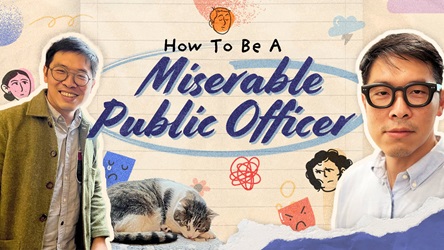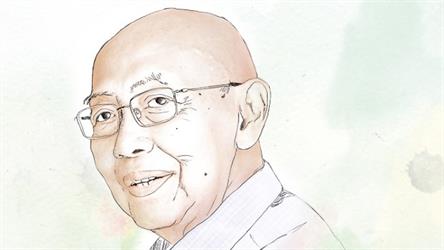Don't Be Afraid To Ask by Chan Heng Chee

Dear Young Officer,
I hesitate to give you advice as our careers are so different. Instead, I’ll share some observations, and if you think they are valid, you may want to do something about it.
I have been Singapore’s chief diplomat in Washington, DC, for 14 years and Permanent Representative to the United Nations (UN) 1989-1991. Before that, I taught political science at the National University of Singapore. The university emphasises autonomy and inner-direction but within the rules of the organisation.
So when I entered laterally into the Ministry of Foreign Affairs to take up my post as Perm Rep to the UN, I was quite inclined to do just what I thought needed to be done. Only, I was very green in diplomacy and the civil service. I took a lot of advice and talked to many people. I was not afraid to ask questions and did not worry about whether I looked stupid.
My predecessor Kishore Mahbubani generously shared his trade secrets and I learned a great deal from my First Secretary Vanu Gopal Menon who had been at the UN before. It was all learning on the job. I remember I would talk at length to other diplomats, only to stop myself suddenly, wondering if I had given away state secrets. But to be effective, diplomats must trade information. In time, I learned the right balance between talking too much and not at all.
To persuade other countries to accept ASEAN’s position on Cambodia, I spoke to many delegations and was very “active”, a good word in UN diplomacy. My reward was getting Saudi Arabia to sign on as a sponsor for our resolution, something it had withheld for 10 years. I was to repeat this work of persuasion in Washington, lobbying Congress for our Free Trade Agreement with the United States.
These two stories illustrate five points. First, you must not be afraid to ask questions and learn. I worry that this art of asking questions and exercising the mind is disappearing among young Singaporeans. There is too much concern with not appearing stupid.
Second, working hard always impresses. Being persistent towards a solution, bit by bit, explains 90% of success. US Secretary of State Hillary Clinton is admired for her hard work and persistence at working a problem.
Third, communication skills are vital. You must explain to others what is there in it for them. Frequently, young officers write very well but cannot carry out a sustained verbal presentation. We need to overcome our fear of talking.
Fourth, people skills are absolutely important. In an organisation, it helps forge ties and promote better management. It begins with eye contact and a real desire to reach out to others.
Finally, what gives pleasure and satisfaction in work is a sense of mission. You can say I belong to the lucky generation; we had purpose and mission thrust upon us. On August 9, 1965, I left for the US for graduate studies on a scholarship at Cornell University. On campus I was often asked to explain Singapore’s independence. As I told my professors: “I must go home. My country needs me.” I wrote my master’s thesis on “The Politics of Survival: Singapore 1965-1967” so I could feel the tense developments in Singapore palpably even in the small college town of Ithaca. All these come together in my work. I would like to believe I am a better public servant as a consequence.
- POSTED ON
Nov 4, 2010
-
Letters
Be a Willing Learner









